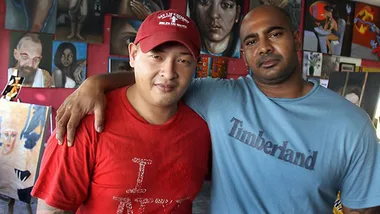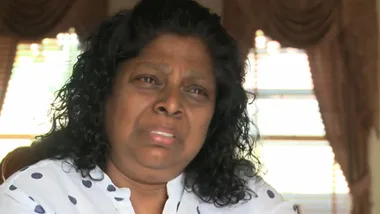Reports of the pair’s deaths came at about 3.40am AEST Wednesday morning when it is believed Mr Sukumaran, 34, and Mr Chan, 31, were led out of their isolation cells in Besi prison, on Nusakambangan Island, along with six other death row inmates and shot.
Eight prisoners were executed. It’s been reported Filipina Mary Jane Veloso was spared at the eleventh hour.
The two men were condemned to death in 2006 after being arrested at Denpasar airport in April 2005 for attempting to smuggle more than eight kilograms of heroin to Australia.
Before being killed the two men had become the centre of a high profile campaign to have their sentences commuted to life in prison on the basis of the fact that their 10 years of incarceration had rehabilitated them into model prisoners.
Australian Prime Minster Tony Abbott and his government were vocal about their attempts to save the pair but Foreign Minister Julie Bishop revealed on the morning before the execution that she held grave fears for the men after receiving a letter from the Indonesians.
“They gave no indication that President (Joko) Widodo would change his mind and grant the clemency that we have sought,” she told the Nine Network.
Before the pair was killed, six former Australian Prime Ministers – Kevin Rudd, Julia Gillard, John Howard, Paul Keating, Bob Hawke and the late Malcolm Fraser – had voiced their support for leniency to be granted by the Indonesian government.
In statements made to The Australian newspaper Mr Howard said Mr Sukumaran and Mr Chan were genuinely rehabilitated, while Mr Rudd for years advocated the pair to been shown mercy.
“As a long-standing friend of Indonesia with a deep affection for its people, I add my voice respectfully requesting this act of clemency,” tweeted Mr Rudd the day before the pair was killed.
Andrew Chan’s early life
Andrew Chan was born in Sydney in 1984 to Ken and Helen Chan.
He was the youngest of his four siblings and while born to Cantonese-speaking Chinese migrants, Andrew, along with his two sisters and brother, deeply embraced their native Australia.
As a child Andrew was raised in Enfield, in Sydney’s south-west, and it was there the young lad developed a passion for sports, particularly rugby league and tennis, and a larrikin-style sense of humour.
Andrew attended Homebush Boys High School before leaving school in Year 10 to find work in a catering company.
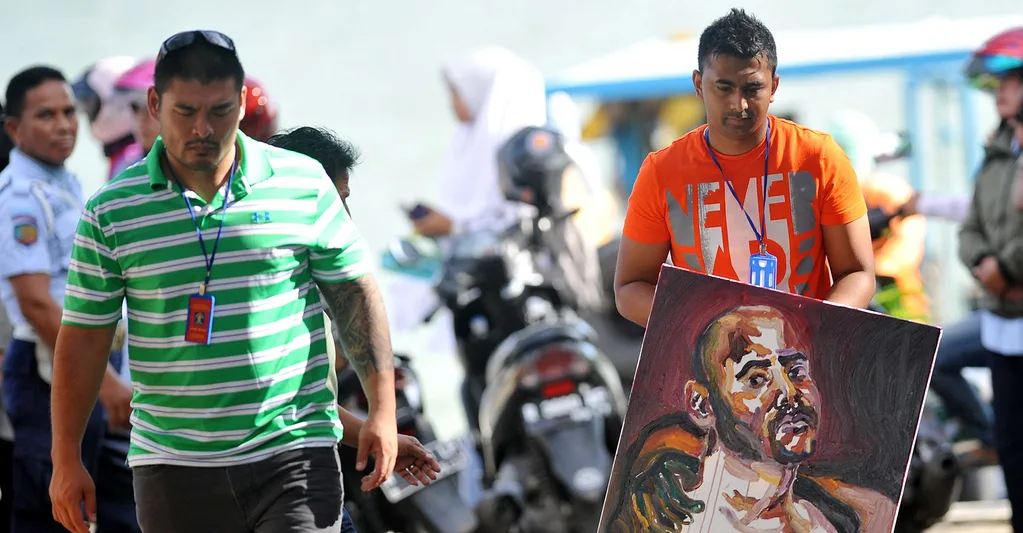
Chinthu Sukumaran (R), and Michael Chan (L), the brothers of Australian death row prisoners Andrew Chan and Myuran Sukumaran, carry a self-portrait painting of Myuran Sukumaran as they prepared to speak with journalists just days before the executions.
Myuran Sukumaran’s early life
Myuran Sukumaran was born in London in 1981 to parents of Sri Lankan heritage.
Myuran, or ‘Myu’ as he was nicknamed, migrated to Australia with his family to Sydney’s western suburbs when he was just four-years-old in 1985.
He was the eldest of three children with one younger brother, Chintu and sister, Brintha.
Myuran attended Homebush Boys High School in Sydney, where he met and became friends with Andrew Chan.
After school Myuran worked in a mailroom and had clerical jobs, and later worked in the passport office in Sydney.
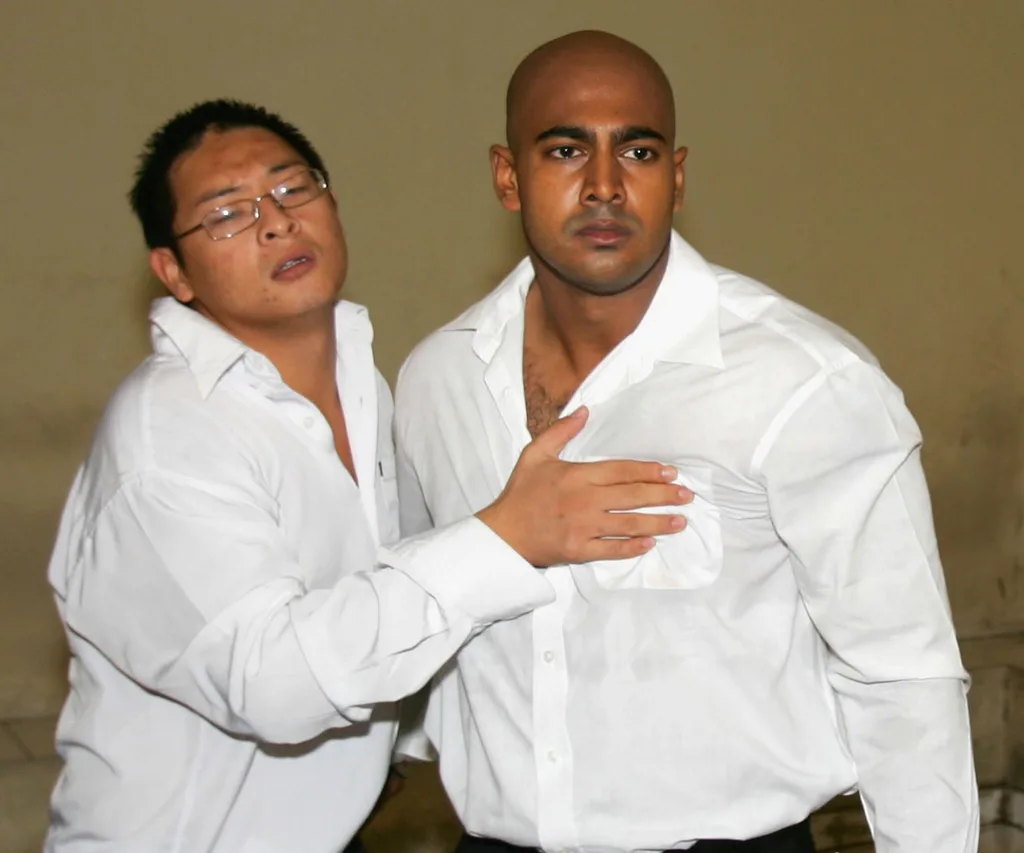
Andrew and Myuran as they were sentenced to death in February 2006.
Criminal Case
In April 2005, Myuran, then aged 24, and Andrew, then 21, and seven others were arrested for their attempt to smuggle eight kilograms of heroin into Australia. The group of Australians arrested became to be known collectively as the ‘Bali Nine’.
The pair were tried in the Denpasar District Court and on February 14, 2006 they were convicted and sentenced to death by firing squad.
They lost two more appeals and by September 2006 had been sentenced to death three times. At the time Indonesia was under the leadership of President Susilo Bambang Yudhoyono who reportedly had a dislike for capital punishment and agonised over clemency decisions. The death penalty may have not occurred under his government.
From that time Chan and Sukumaran changed legal counsel and concentrated on their rehabilitation, slowly turning their lives around.
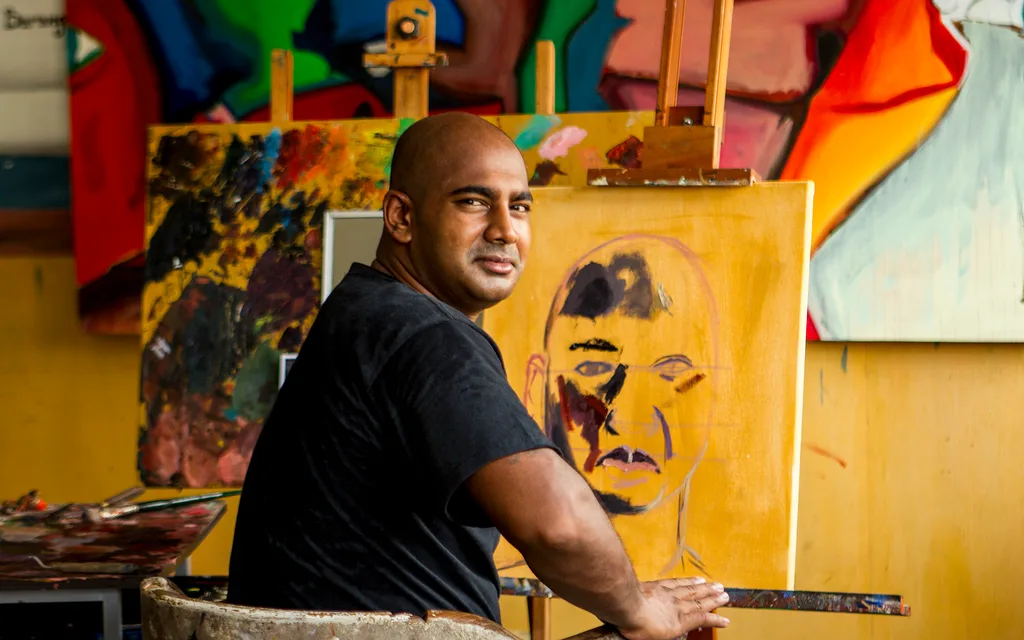
Myuran Sukumaran in his studio in Kerobokan prison.
Life in Prison
Since they were arrested Andrew and Myuran had been housed in Bali’s Kerobokan Prison.
According to many reports, those who knew the two Australians well described them as model inmates, and successive prison governors had attested to their good character and their process of rehabilitation.
After years of self-reflection Andrew became a pastor of Christianity and took courses in theology to run the English Language Church Service in the prison.
Myuran spent his time in prison teaching computer and graphic design courses, giving fellow inmates much needed job skills.
Also, under the tutelage of acclaimed Australian artist Ben Qulity Myuran became a skilled painter and ran an art studio inside the prison.
The softly spoken inmate once even went so far as to describe his arrest as a “blessing”, saying:
“You know, when I think back at my life, I never really contributed to anything. Now I’m doing all sorts of stuff around here. It feels good, really good.”
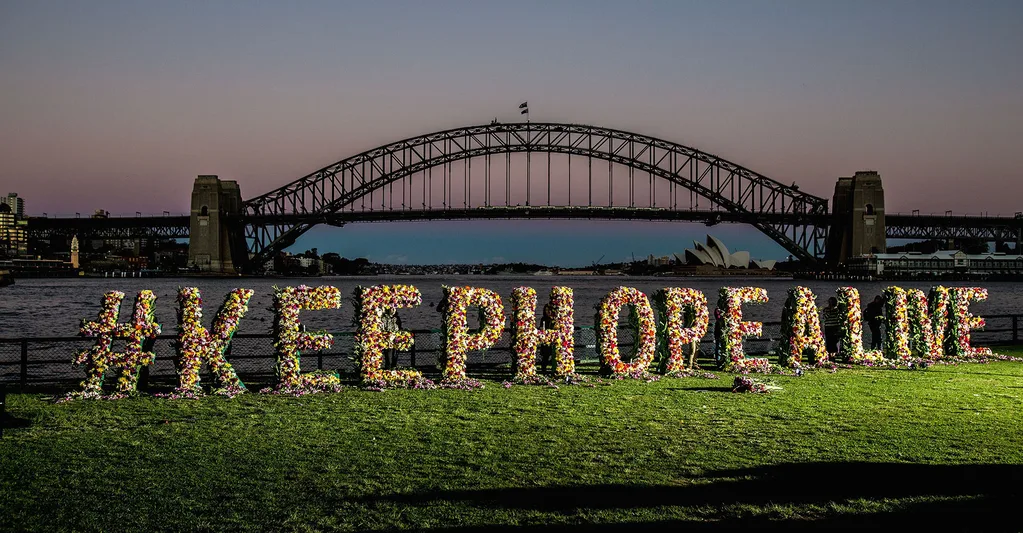
There were vigils held all across Australia pleading for Mercy for the two Australian men to be spared from the state sanctioned killings.
In the end
Following their final prison visit to see their loved ones on Tuesday afternoon, the families of the Bali duo made one last desperate plea to Indonesian president, Joko Widodo to show mercy and grant clemency.
Mr Chan’s brother, Michael Chan spoke about what it was like to say goodbye to his brother, an ordeal he described as “torture”.
“I saw today something that no other family should ever have to go through,” he said.
“Nine families inside a prison saying goodbye to their loved ones.
“To walk out of there and say goodbye for the last time, it is torture.”
Just days before Andrew Chan married his fiancée, Febyanti Herewila at a ceremony held in prison.
Myuran Sukumaran’s mother, Raji was so understandably grief stricken in her address to the media she had to be held up by a family member as she pleaded desperately for her son’s life.
“I’m asking the government not to kill him please,” she wept. “Please don’t kill him today, please don’t, call off the execution. Please don’t, don’t kill my son, please don’t.”
Her pleas, and the pleas of millions of Australians, fell on deaf ears as Andrew and Myuran we not granted clemency by the Indonesian President.
Prior to the execution the ABC reported that Indonesian authorities were going to deny the pair “spiritual support in the final moments before their executions” even though Indonesian law stipulates that prisoners condemned to death are allowed religious counsel in their final moments.
In the end, the two young healthy men were lead out of their cells in the darkness and shot by firing squad.
They reportedly chose to take their punishment standing, with blindfolds off as they sung Amazing Grace in unison with the other death row inmates just before the guns fired and killed them all.
One final act of defiance…
In the days before their execution, the pair refused to sign their own death warrants – perhaps it was because these men, these sons, brothers and friends knew that they had so much more left to give.
Andrew Chan and Myuran Sukumaran were willing to spend the rest of their days helping the people of Indonesia and they weren’t going to let the mistakes of their youth be excuse enough to rob the world of their offer to make it a better place.

